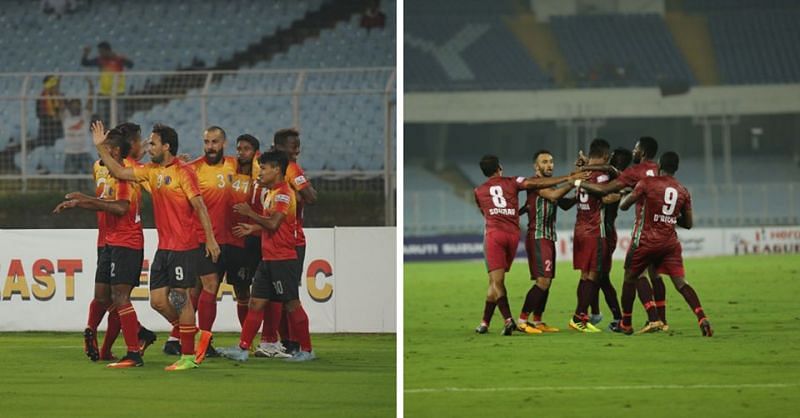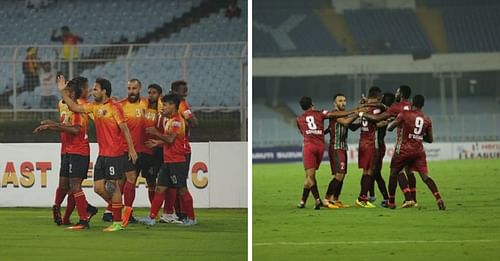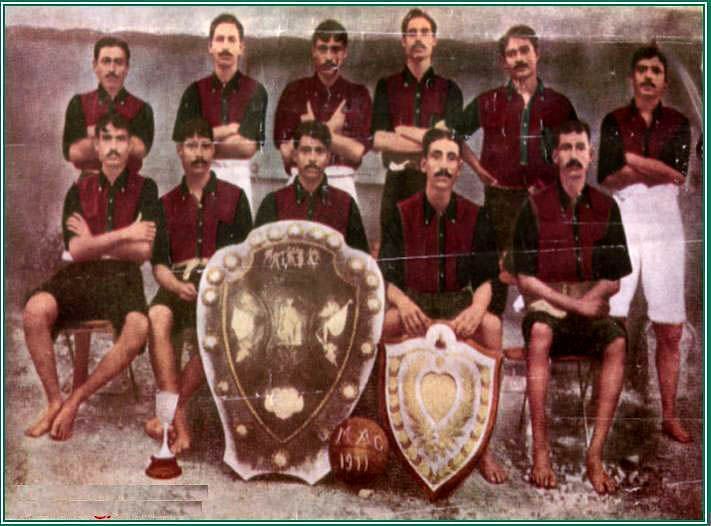
East Bengal vs Mohun Bagan: The Captivating Folklore of Cultural Supremacy

While India was still bound by the shackles of British rule, East Bengal Football club faced Mohun Bagan AC for the first time in the year 1925 commencing a sporting rivalry known as The Kolkata Derby that has persisted through the decades.
This was the beginning of a socio-ethnic rivalry which has witnessed a colossal number of crowds and flaring tempers over the years.
The rivalry started in the year 1920 when Sailesh Basu, a celebrated player from Vikrampur, Dhaka was excluded from the team of Jora Bagan purportedly because of his ethnicity.
This irked the owner, a rich industrialist who along with Sailesh Basu formed a new club, which will represent the interests of the immigrants coming from East Bengal, present-day Bangladesh.
Mohun Bagan in those days was a big club dubbed as the 'National Club' of India. Formed in 1889, this team playing with bare feet defeated an English team in 1911 IFA Shield Final and thus became the avant-courier of India's freedom struggle.

East Bengal were the newcomers who often experienced discrimination from those who considered themselves autochthonous to the city.
They believed themselves to be more urbane, suave and classy compared to their counterpart immigrants from East Pakistan.
Thus the clashes between two geographically and culturally divided clans became common. The rivalry reached its boiling point in the year 1951 when millions of 'Bangals' immigrated and settled down in Bengal.
With this inrush came great unrest. The natives did not welcome the impostors with deference. On the other hand, East Bengal received a massive boost to their fan base. Through the club the grief-stricken people found an avenue to have their voices heard. The political scenario of West Bengal was also not spared.
The Communist supported the Red and Gold Brigade while the Congress Party's core vote bank was the Green and Maroon supporters.
These extreme feelings of apathy towards each other gave birth to a rivalry where the players were like soldiers fighting for the pride of their communities. Winning and losing became the yardstick of supremacy over each other.
East Bengal and Mohun Bagan have clashed a number of times. The 1960' s was a period dominated by Bagan while 70' s are remembered as the decade of East Bengal' s vengeance.
In 1975 East Bengal played their greatest match in history when they hammered Mohun Bagan 5-0 to win the IFA Shield.
In the year 2009, 125,000 people witnessed a Green and Maroon's baptism when they returned the five goal favor to East Bengal. Violent clashes became the norm.
During a derby match in 16th August 1980 clashes between two players Dilip Palit and Bidesh Bose initiated fight in the galleries which emanated violence claiming the life of sixteen men.
Over the years people have cited different reasons for this tragedy like faulty administration, police inaction etc but the real reason was none other than fierce rivalry.
The scenario started changing with the betterment of living standard of the middle class. As marriage between Bangals and Ghotis became common, the difference in culture, rituals and food habits shrunk.
With fading cultural differences, the new generation became more reconciling. The deterioration of the quality of football in India, Globalization of football, fanaticism around cricket thanks to Sachin and Kolkata' s own Dada's (Sourav Ganguly) success also played a role in football losing its prominence among Bengali people.
With the influx of money and glamour making roadways in Indian Football through ISL local leagues has lost much of its popularity. But money alone cannot wane the range of emotions like pride, agony, madness, the passion of the fans of these two clubs.
The love and passion for this beautiful game reside in the heart of Bengal and this rivalry will exist as long as Bengali race exists. Kolkata Derby will enchant, unite, excite and infuriate thousands of people with its on the field and off-field fables. The Kolkata Derby this weekend is like a reminder of how a community can cling to its cultural heritage.